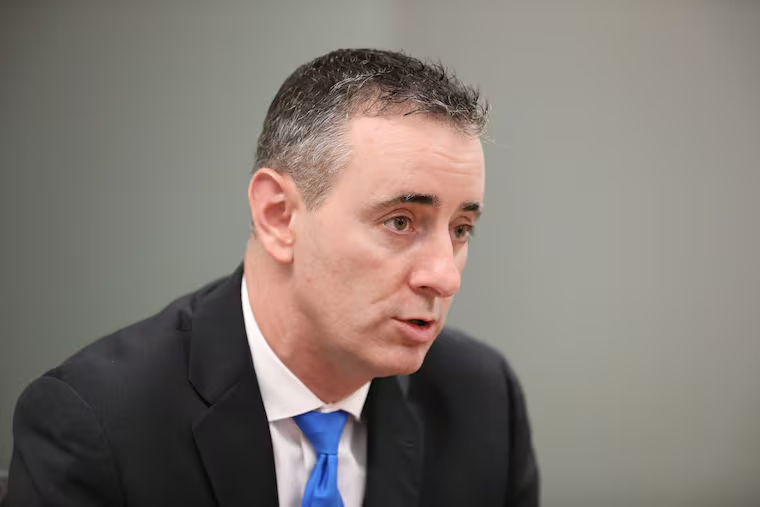Brian Fitzpatrick deserves a second term in Congress | Endorsement
The voters in Pa.'s First District have two good options to choose from, but Brian Fitzpatrick is the better one.

When the Pennsylvania Supreme Court redrew the district lines earlier this year, the old Eighth District — covering Bucks County and some of Montgomery County — became the new First District. While the district stayed mostly the same, that change had the potential to be bad news for Republicans — in 2016, Donald Trump carried the old Eight by less than a thousand votes — about a quarter of a percentage point; Hillary Clinton would have carried the new First by more than two.
The upcoming election poses an interesting test: Can a moderate Republican win over a few Democrats to keep his seat in Congress?
The "incumbent" in the race is Rep. Brian Fitzpatrick, a former FBI agent who was elected to Congress to represent the old Eighth in 2016. Running against him is Scott Wallace, a career public servant who in the last 15 years has been running his family's foundation with his wife.
The voters in the First District have two good options to choose from, but Brian Fitzpatrick is the better one.
Fitzpatrick is a member of the Problem Solvers Caucus, a bloc of House Representatives drawn equally from both parties to find common ground. He visited the Fifth District of New Jersey to campaign for fellow Problem Solver, Rep. Josh Gottheimer — a Democrat. In the current political reality, that is almost hard to believe.
During his first term in Congress, Fitzpatrick sponsored a bill to protect the investigation of special counsel Robert Mueller and voted against the Concealed Carry Reciprocity Act, which earned him the endorsement of gun-control groups. He also supports campaign finance reform and moving to public finance of campaigns.
On the economy, Fitzpatrick is mixed bag. On one hand, he voted in favor of Trump's tax cuts, although he says he is not sure that Trump ever read the bill. He argues that the tax cuts will lead to economic growth, though we are skeptical. On the other hand, when asked if he supports a living wage of $15 an hour, Fitzpatrick said that he is unwilling to commit to a specific number, but believes we need to find out what a livable wage is in every community, attach it to inflation, and have that be the minimum wage in that community. We want to see more politicians join Fitzpatrick and express a commitment for a livable wage for working people.
The Democrat in the race, Wallace, is running a self-funded campaign on a progressive agenda including Medicare for all, increasing the minimum wage to $15 an hour, and reducing the cost of tuition in public universities. Wallace promised to introduce legislation to require all candidates for president to disclose their tax returns. However, Wallace, a multi-millionaire who refused to release his tax returns, sounds a lot like Trump when he explains why he shouldn't — "releasing tax returns does open a Pandora's box," and "you have my financial disclosures." Wallace had an opportunity to lead by example, but he chose not to.
In a time when politics is divisive and polarizing, Fitzpatrick's emphasis on bipartisanship is a breath of fresh air. We don't agree with him on everything, but his brand of politics should be rewarded.